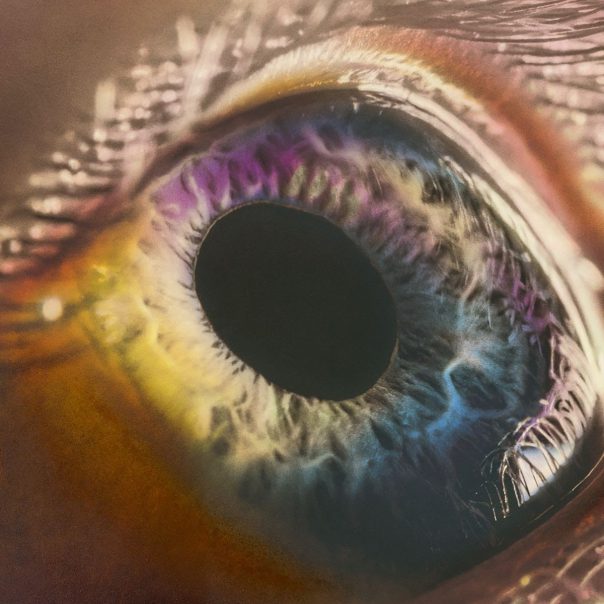ALBUM REVIEW: Arcade Fire returns with terse, tense, touching ‘WE’

Arcade Fire, “We.”
WE, the first proper Arcade Fire LP in almost five years, seems a little slim at first glance. Compared to the 64-minute The Suburbs or the 75-minute Reflektor—not to mention the latter’s 102-minute deluxe edition—the new album’s 40 minutes look especially meager. In fact, not counting singles or the HER soundtrack, these seven tracks are the Canadian-American band’s shortest release since its 33-minute 2003 debut EP.
WE
Arcade Fire
Columbia, May 6
8/10
Some might think that a group—particularly one as commercially and critically lauded as this—should have more to offer after half a decade away. However, WE displays no signs of being tossed off for a buck or cobbled together as a product for a tour. Between the album’s streamlined production and its clear, forthright songcraft, it feels more like Win Butler, Régine Chassagne, et al took that time to figure out exactly what to say and how to say it. It calls to mind the Blaise Pascal quote: “I would have written a shorter letter, but I did not have the time.”
And ultimately, that’s what WE feels like: A well-honed, heartfelt letter from an old friend you haven’t seen in a while. While it may not have the pungent details and cathartic power of Alt-J’s The Dream or, especially, Gang of Youths’ Angel in Realtime, the album’s empathy and goodwill carry it over the line anyway. Of course, the solid tunes and the buoyant beats help.
In typically grandiloquent fashion, Arcade Fire divides the LP into sides and sections with labels steeped in portent. The first side, titled “I” (as in “me, myself, and”), focuses on the not-so-quiet desperation of life during MAGA, COVID-19 and climate change. The second side, “We,” calls for unity, healing and perseverance in the face of that desperation. The compositions on each side have names like “End of the Empire I-IV.” Thankfully, all of this lit-major pomposity dissipates soon after you hit play.
The “I” side begins with the theme-setting “Age of Anxiety I.” Over some gentle, plaintive piano, Butler laments our current “age when nobody sleeps,” no matter how much TV we watch or how many pills we take. Ghostly synthesizer chords hover in the background like the nagging worries that all our modern conveniences can’t quell.
But as the music swells, the frontman seems to draw strength from the steady drumming and Chassagne’s celestial voice. The track finally builds to a pulsating disco beat. “Gotta get this spirit out of me,” Butler moans as Chassagne floats and swirls around him and the synthesizer chords crescendo like the rising sun. This, in capsule form, is the album’s message: We will only get through this together.
That message doesn’t sink in right away, though. The second track, “Age of Anxiety II (Rabbit Hole),” has Butler and Chassagne giving the modern age’s creature comforts another try. “Heaven is so cold,” he sighs, and the icy synths and the robotic rhythm do nothing to assuage his despair.
The “I” side ends with the somber “End of the Empire I-IV.” Piano, acoustic guitar and synthesizer gather around as Butler muses on the decline and fall of the American empire. The solemn beat and some swooning strings give the track a suitably funereal feel.
The album’s lead single, “The Lightning I, II,” kicks off the “We” side. Butler’s urgent strumming heralds the end of the first side’s dark night of the soul. “We can make it if you don’t quit on me/ I won’t quit on you,” he promises as the band marches alongside him. When they break into an ecstatic Springsteen-esque gallop around the three-minute mark, it’s like the first warm spring day after a long, cold winter.
Next up is the folk-inflected “Unconditional I (Lookout Kid),” in which Butler offers solidarity to all the youngsters who’ll make their way through this mess of a world. “Trust your body/ You can dance, you can shake,” he says. The jaunty, stomping rhythm encourages them to do just that.
On “Unconditional II (Race and Religion),” Chassagne pledges unceasing devotion over a sensuous, bubbling groove. “You and me/ Could be we,” she coos. You could read that both romantically and politically.
WE closes with the spare, luminous title song. “I wanna get well, I wanna get free/ Would you wanna get off this ride with me?” Butler asks. The ringing acoustic guitars hint at the wonders that await if the listener says yes.
Follow reporter Ben Schultz at Instagram.com/benjamin.schultz1.
